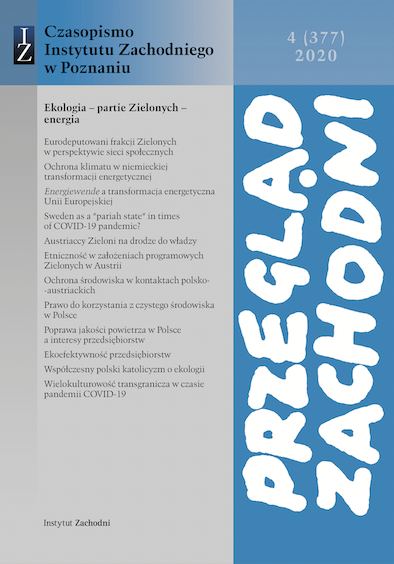Polityka USA wobec problemu Odry i Nysy Łużyckiej w poglądach Zbigniewa Brzezińskiego w latach 60. XX wieku
U.S. policy toward the Oder-Neisse Line in the views of Zbigniew Brzeziński in the 1960s.
Author(s): Krzysztof SiwekSubject(s): Diplomatic history, Post-War period (1950 - 1989)
Published by: Instytut Zachodni im. Zygmunta Wojciechowskiego
Keywords: Zbigniew Brzeziński; United States; Poland; Oder-Neisse Line; frontiers, Germany; Europe; political ideas
Summary/Abstract: The objective of this article is to present the political ideas of Zbigniew Brzeziński behind his position on the U.S. policy toward the question of Poland’s western frontier in the 1960s. The main task is focused on the extent of connection between Brzeziński's argument for the final recognition of the Oder-Neisse Line by the United States and his aim to overcome the Cold War division of Europe and the problem of national borders. Brzeziński's views on the frontier is worth explaining also in relation to his opinion on Polish-German and Polish-Soviet relations as well as on Polish nationalism and communist ideology.Accordingly, the question of the Oder-Neisse Line is addressed here in the context of Brzeziński's comments on U.S. policies toward the Federal Republic of Germany, the Soviet Union and Europe as a whole. The main sources for the study were Brzeziński's political commentaries, publications and archival material concerning Poland's western border in the 1960s. However, this study extends beyond the purely diplomatic history of the Polish frontier question by combining Brzeziński's views on the Oder-Neisse Line with his internationalist concept of European political-economic relations. As this paper demonstrates, Brzeziński's claim for the formal recognition of the Oder-Neisse Line by the United States in the 1960s developed within the framework of American political, geopolitical and economic designs for Germany, Soviet Union and for Europe as a whole in the context of the Cold War. Although his argument regarding Poland's western border contributed to the desirable increase of U.S. political interest in Poland and Central-Eastern Europe, nonetheless Brzeziński favored a kind of European interdependence of states and "Europeanization of Poland" over the restitution of its full sovereignty based on anti-Soviet nationalism. This peculiar universalist vision of Central-Eastern Europe coupled with socio-economic determinism appear to have profoundly affected Brzezinski's Polish frontier claim based on an assumption that both the Cold War division of Europe and national borders would eventually diminish in political significance as a result of Western recognition.
Journal: Przegląd Zachodni
- Issue Year: 378/2021
- Issue No: 01
- Page Range: 137-155
- Page Count: 19
- Language: English, Polish

